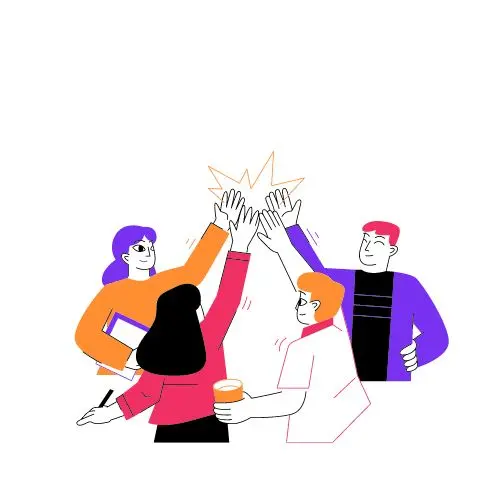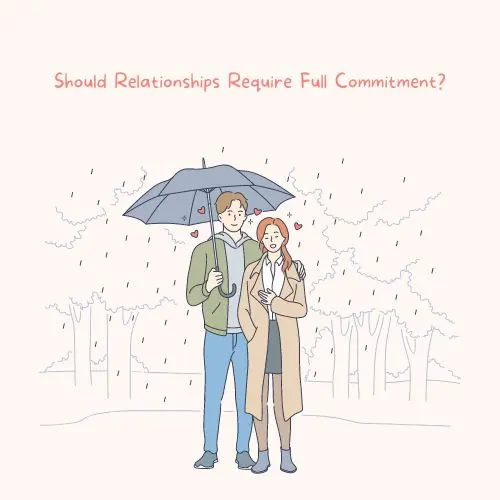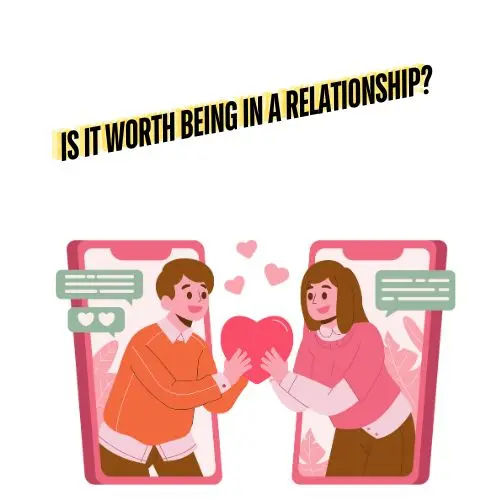Introduction
Being in a relationship can bring many joys, like intimacy, companionship, and family. However, it also requires effort and sacrifice and comes with risks. Is the reward worth the work? Let’s weigh the pros and cons.
| Percentage of single adults who want to be in a relationship | 49% |
| Divorced Couples Remarry Each Other | 6% |
| Average relationship length before engagement | 3-5 years |
Benefits of Committed Relationships

When cultivated healthily, relationships provide multidimensional fulfilment that is difficult to achieve alone. Some key benefits include:
Emotional Intimacy
Sharing your life with a trusted partner allows for unconditional love, emotional support, and radical authenticity no other bond provides. Partners can be fully seen and accepted.
Companionship
Going through life’s ups and downs hand in hand offers comfort. Partners enjoy shared activities, experiences, and inside jokes together that strengthen their bond.
Family Building
For those wanting children, a committed relationship provides the stability and teamwork required to raise well-adjusted offspring within a nurturing home.
Financial Perks
Dual incomes, shared living expenses, and partner benefits like health insurance help ameliorate today’s increasingly expensive cost of living.
When mutual respect, trust, and understanding are established, the above advantages of relationships vastly outweigh living solo for many people. But relationships require continual hard work, too.
Potential Relationship Drawbacks
While potential benefits like the ones above motivate pursuing committed partnerships, significant challenges exist that not all relationships withstand:
Interdependence Loss of Identity
Relying fully on a partner for emotional and social fulfilment risks weakening one’s independent sense of self. Codependency threatens individual growth.
Sacrifices and Compromise
Balancing two lives requires perpetual compromise that is emotionally taxing. Special interests must sometimes take a backseat to the relationship.
Lack of alone time
Constant togetherness with little solitary reprieve bakes resentment. Too much shared responsibility leaves no room for personal recharging.
Financial Entanglement
Managing joint bank accounts and debt risks messy divorces down the road should compatibility wane. Untangling assets strains already tense breakups.
Conflict and Arguments
All humans fight periodically. However, for sensitive souls or those bad at conflict resolution, relationship quarrels take heavy emotional tolls.
Infidelity and Distrust
No matter the care is taken, humans are imperfect. Temptation, opportunity, or loss of passion down the road threaten fidelity and break relationships.
Lifelong Commitment Uncertainty
Despite good times, people and feelings change over decades. Committing permanently carries significant unknowns and life transition stresses.
While relationships potentially enrich lives enormously when smooth, the preceding downsides show they require constant maintenance work that isn’t for all temperaments. Let’s weigh these pros and cons further.
Assessing Personal Readiness for Relationships

Given relationships’ complex dynamic of rewards and difficulties, it’s prudent to assess one’s capacity and needs candidly before committing fully. Some questions to consider:
Emotional Maturity and Independence
Can one handle the intimate vulnerability of sharing life with a partner without losing their autonomous sense of self? Are codependency issues likely to surface?
Conflict Resolution Skills
How will inevitable arguments be navigated constructively? Do impatience, resentment, or withdrawal tendencies emerge under stress, signalling relationship instability?
Sacrifice and Compromise Tolerance
What exactly will be happily given up for a partner long term? At what point does too much self-suppression breed discontent?
Honesty with Oneself
Does the idea of commitment feel exciting or restrictions to personal freedom? Which desires truly motivate relationship pursuit – loneliness or compatibility with a specific person?
Relationship Experience
How did past attempts at coupling go? Were lessons learned around healthy communication, boundary setting, and dealing with breakdowns to improve future chances of success?
Lifestyle Compatibility
Do core values, interests, and habits align or clash significantly with a potential partner? Can the right person be identified, or is it better to focus inward first?
Only by gaining clarity on the above does one enter relationships with eyes wide open to realistic expectations instead of rose-coloured assumptions. Personal preparation prevents unnecessary suffering later.
Should Relationships Require Full Commitment?

Given that relationships require sacrifice while not ensuring permanence or fulfillment, an argument emerges that not all people need to promise lifelong dedication. Perhaps some varieties serve specific seasons well with less pressure.
Casual Dating
Surface-level, low-investment dating allows pursuing multiple options simultaneously with the freedom to quit whenever compatibility issues arise. Perfect for those new to relationships or unsure if they are ready.
Situational Partnerships
Commitments focused more on shared interests/activities versus life-merging can thrive where the romantic connection is lacking while satisfying basic intimacy needs temporarily. Less risk for all involved.
Conscious Uncoupling
Rather than stubbornly fighting inevitable feelings fade with promises of “forever,” some argue normalizing conscious transitions benefits all. Removes unrealistic expectations and straining ties.
While society sometimes casts those exploring less traditional relationship models as commitment-phobic or superficial, evidence shows humans pair bond in diverse, healthy ways when true to their situations. Non-traditional needs do not equate to being unstable or unimportant.
Does a label like “girlfriend/boyfriend” confer inherent meaning simply due to social conditioning versus subjective experiences within each unique relationship dynamic? For many, less pressure fuels more genuine connections throughout life seasons.
Healthy Solo Living: A Rewarding Alternative

For some, the cons of relationships simply outweigh the pros regardless of situational experiences. And that’s perfectly acceptable – self-knowledge and boundaries preserve well-being.
Committing to enriching one’s life without a partner teaches invaluable skills like:
- Emotional independence
- Self-soothing during tough times
- Appreciating solitary interests, hobbies, and introspection
- Forming supportive non-romantic communities
- Financial self-responsibility
- Learning to love oneself fully as-is
Happy solos often express finding unexpected confidence, freedom, and even deeper relationships by releasing unrealistic societal relationship timelines pressures. Their full cups overflow in service of others from a place overflowing internally first.
Rather than a last resort, solo living well represents a complete lifestyle philosophy that is equal to but different from relationships. Neither is inherently “better” – both paths can fulfilled provided walked with eyes wide open, not out of fear. Freedom means pursuing what nurtures the soul regardless of common conceptions.
In Conclusion
At the end of the day, only individuals know if relationships serve them based on inherent temperament, capacity, needs, and what truly nourishes their well-being. For some, committed partnership proves life’s most rewarding experience.
But for others, less pressure or fulfilling independence equally meets relational and personal growth needs. Regardless, consciously exploring one’s situation with self-awareness, communication, and care for potential partners involved leads to the wisest decisions and the least regret down the road.
The factors outlined aim to help each reflect honestly.
t biases on relationships’ potential ups and downs relative to their unique selves. With that clarity, following one’s bliss feels most free and purposeful, whether within commitments or outside their frameworks.

